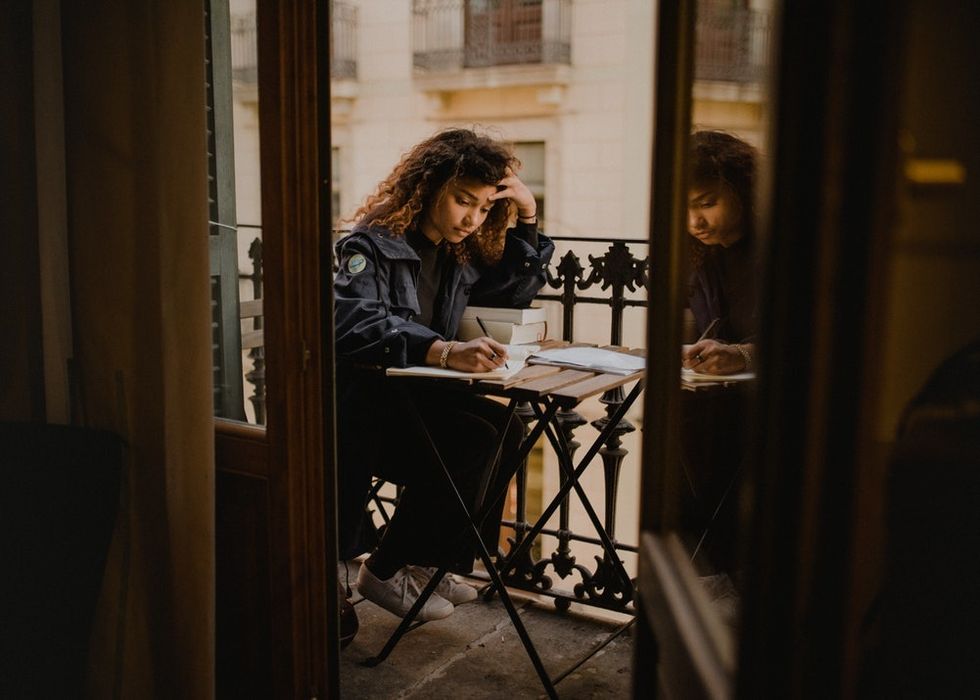Being a writer has its perks. It enhances the imagination, widens the scope of possibilities and is limitless in regards to what can be written about or explored.
Yes, writing takes many forms — poetry, story writing, blogs and articles. There is a whole world of writing waiting to be explored, a world that provides many opportunities.
And then there's the worst thing that can happen to one of a creative mindset: writer's block.
When writer's block happens to me, I get irate and begin to panic. I start feeling as if I have just lost touch with writing and will never be able to look at words the same way again. Dramatic, right? I just cannot help myself.
Thankfully, I've discovered a few ways to deal with writer's block when it strikes.
Since April I have had writer's block, mostly from doing so many assignments for university in one month. I think my batteries ran out. I found myself unable to think creatively or imagine any ideas that I found to be remotely interesting, when, the month before, I had been writing so much for university that I had given up on all perspectives on things that pleased myself.
So, what did I do?
To be honest, I panicked. I thought I had lost my talent. I began to freak out, I forced myself to write short stories, which was the worst thing I could have done — these were not good at all.
I then turned to panic to my friends, who told me to calm down. Obviously, I couldn't. I felt worthless for a few months in terms of my talents, all while other family members were going into more "practical" jobs like medicine. Hearing them talking about this made me feel uneasy. These people would never get medical block, right?
So I thought to myself, "Maybe I need to rethink my career choice." This was obviously a stupid thing to do, as I adore English. I always have, and I always will.
One friend suggested that I go outside of my comfort zone to try to stretch my creativity. So, this is what I did. I moved away from stories and started writing poetry. I wrote one, which I liked, and then I wrote seven more. Not liking these, I became frustrated again.
This made me realize that I am a perfectionist, I become easily stressed if something I create does not conform to my expectations.
This was also when I learned to take it easy. I wrote drafts of poetry. and that eased me for a while. But soon after, I had writer's block again. In hindsight, this was probably because I pushed myself too much. I needed to learn to step back and wait for my creativity to return. Yes, it was frustrating. But it was something I had to deal with.
A few weeks later, I decided to stretch my creativity once more. I turned to sketching. I am the worst artist in the world; I cannot even form a stickman. However, this change of territory was an eye opener, as it allowed me to explore different creative boundaries. And funnily enough, this rekindled my creative spark. I am now writing more poetry and am currently thinking of ideas for stories.
I have since learned that writing is not a battle. It is something I have chosen to pursue and will, therefore, ensure I enjoy doing it. I am to always take time for myself, whether it be relaxing or taking a walk. Walks do actually help me in terms of opening my mind and enabling me to think more clearly.
So, what I'm saying is, if you ever suffer with writer's block:
Take a step back. It is important to take time for yourself and not to stress too much, even if it does seem like the end of the world (and it always does). Eventually, the creative spark will return.
Distract yourself. It is important to distract yourself. Carry out other tasks and challenge yourself. Do something you normally would not do.
Take your time. Writing is a form of art. It does not need to be rushed. It is a craft that should be cared about. As an artist cares for their painting, a writer should care for their words.






 The minimum wage is not a living wage.
StableDiffusion
The minimum wage is not a living wage.
StableDiffusion
 influential nations
StableDiffusion
influential nations
StableDiffusion










